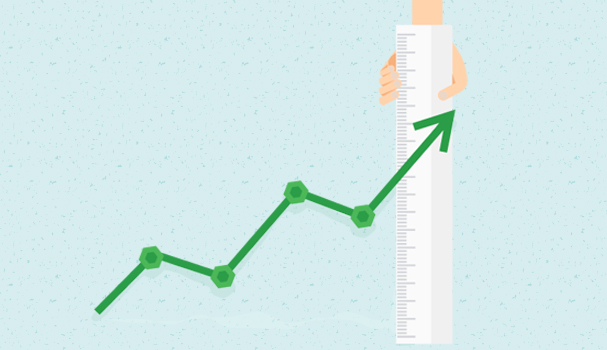The government was rejoicing last month as GDP returned to above pre-recession levels. As far as the powers-that-be were concerned, this signified that the economy is now well and truly in recovery mode, with things only set to get better from here on out.
However, it remains to be seen whether the impact has been as keenly felt by the nation’s SMEs, which make up 99% of businesses in the UK. A study of 1,000 SMEs from Bibby Financial Services found 34% saying that GDP wasn’t a relevant measure of the country’s economic health. Moreover, it was suggested that it wasn’t an altogether helpful indicator for small businesses whose initial focus is generally on ramping up traction in local markets, before turning their attention to national growth. For this reason, respondents to the Bibby survey suggested GVA (Gross Value Added) – which measures regional output – provides a more relevant and helpful economic indicator for SMEs.
But is this a view shared by the wider start-up and SME community? Are there other indicators that are even more useful than GDP and GVA – or do all efforts at assessing the state of the economy simply pale into insignificance for an individual trying to build a business?
 “A completely inaccurate measure of the economy”, Brandon Ackroyd, founder, TigerMobiles.com
“A completely inaccurate measure of the economy”, Brandon Ackroyd, founder, TigerMobiles.com
GDP is a completely inaccurate measure of the economy or prosperity and is sadly just used as a propaganda weapon. The new set of GDP statistics fail to point out that national debts have never been higher, household debts are increasing and real wages haven’t gone up in years. The amount of debt we have as a nation is frightening but all the government say is ‘let’s think of new ways to calculate GDP to make the ratio of debt to GDP appear not so bad’.
There is no single number or statistic than can possibly reflect the true state of the economy, regardless of inputs or outputs. Whether it’s GDP, GVA, CPI or productivity, all these statistics are fungible on an almost daily basis so that the government, along with the bankers, can do two things: keep interest rates near zero or make it appear as though there is little to no inflation.
We are now in a bubble artificially created by quantitative easing and this celebration of GDP being back on track and the economy improving is a mirage. The distribution of wealth will only widen and I think things are going to get far worse in the UK before they get better.
 “Real wage changes would be a better metric”, Chris Wood, general manager, Incorporatewear
“Real wage changes would be a better metric”, Chris Wood, general manager, Incorporatewear
Arbitrary measures such as GDP or GVA provide little insight into the health of an economy or market sector and, at the level of an SME, become meaningless. China, for example, has a GDP many times larger than that of Spain, Switzerland or Singapore but judging its economy as inherently healthier than these nations would seem a remarkable deduction from this one fact.
The growth of markets and their value generation is clearly an indicator of economic progress but whether this indicated economic wellbeing is a different matter. As such, GDP is an unsustainable measure unsuitable for projecting market progress.
Perhaps there are more relevant metrics to measure economic wellbeing. One alternative would be to measure real wage changes, since GDP does not account for any wage variation in demographic groups. However, although income distribution metrics focus on fairness, there are concerns about the relationship between income inequality and economic growth. It may be worthwhile to consider the availability of technological business drivers, such as high-speed web access, when it comes to measuring economic wellbeing. ![]()
Share via:


















































